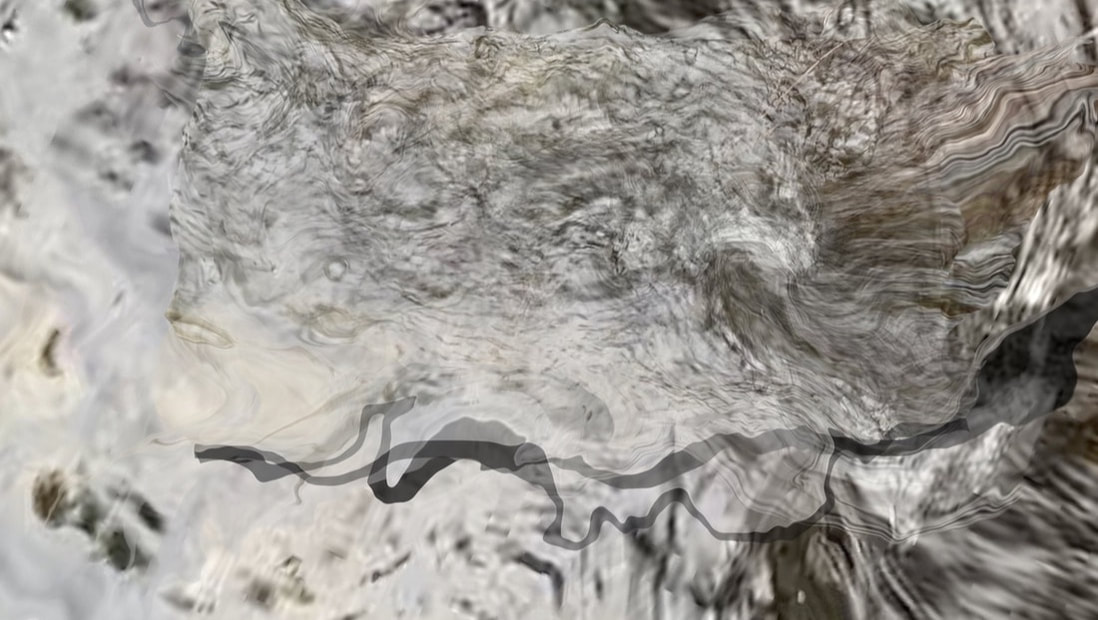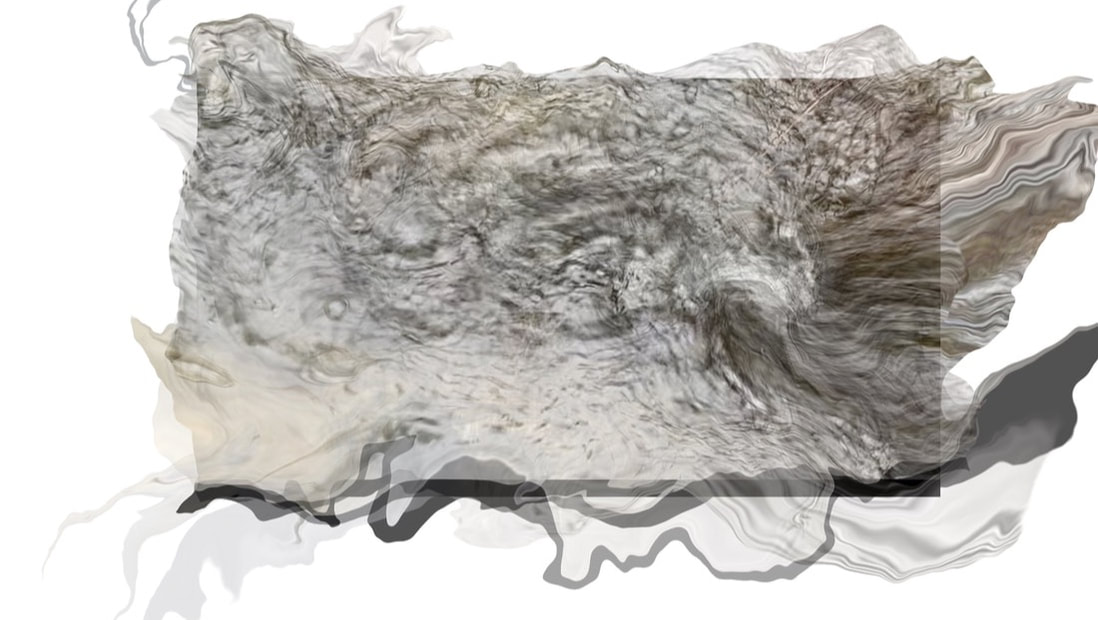|
Academic inquiry generally has a serious purpose, but can it also be playful? In my experience, the doing of PhD research through reading, thinking and writing is far more generative when I inhabit an attitude of play. This doesn’t mean that the work is not serious or purposeful, but rather that my purpose expands to allow for ‘wander lines’ of unplanned trajectory, to respond to the magnetic spark of a word or tangential idea and follow the threads that emerge from it (Manning, 2020, p. 2). To inhabit this mode, I need to allow myself time and space to follow random paths that may or may not lead to an outcome, and to take pleasure in the process of an unknown journey. This requires setting aside deadlines and deliverables, rather than purpose, and getting comfortable with not knowing. I’m going to riff on that idea in this post. Erin Manning’s process philosophy sparks my first steps with a stark embodied metaphor: “Knowing is a verb that worlds … Knowing is not about filling a person up. It is about finding a way, fielding a map.” (Manning, 2020, p. 7) A graphic mental image appears. My head is a glass beaker filling up with sea water. There are some fish, but they swim in circles. High above me old white men in lab coats stand on ladders, gargoyles from whose wide mouths the sea water pours into mine. Even as my head fills and overflows, the deluge continues. In this imagining my head is a passive receptacle drowning in the already known. But what about my body? What does it know? The Cartesian bifurcation of mind and body has a strong pull. Safe. Certain. Just as the Protestant work ethic separates the serious mind and playful body. By contrast, finding a way as a process of worlding is unknown in advance. Knowing is in the doing. Knowing is active and immersive, materially alert and responsive to and of the world, as in Karen Barad’s ethico-onto-epistem-ology: “each intra-action matters, since the possibilities for what the world may become call out in the pause that precedes each breath before a moment comes into being and the world is remade again” (Barad, 2007, p. 185). My whole body responds as I read these words, the hope and potential for change in Barad’s relational ethical knowing in being is viscerally felt. This ‘pause that precedes each breath’ is not a state of inertia or stillness but rather an in-between space alive with possibilities and potentialities that call out to become – each moment an opportunity to remake the world. Memory flash: I am walking through the bush near my house. I feel the pull of the creek after rain and change course. At the creek, the cells of my body expand and relax. A sense of calm. Mesmerised by patterns of movement, light and reflection I take out my phone and film: close, wide, high, low, still, moving. Later, I am drawn away from other work to play with these video fragments through editing – intra-actions of water, rock bed, my body, phone as camera/sound recorder, framing, sound, speed and duration make and re-make the creek’s becoming. Creek worlds emerge differently as shots are included/excluded and juxtaposed in a process of feeling/making/thinking. Diffractions. This playful making intra-acts with what I’ve been reading, writing and thinking about to spark the idea of making/thinking as a diffractive approach to analysis of video data. Perhaps I can explore participant created video da(r)ta in a series of diffractive making/thinking encounters through video editing, staying with/in the audiovisual medium rather than translating it to words. A process of paying attention to dynamic patterns of difference that emerge with and through the videos could be a way to trace movements in understandings of gender toward change through making in my research.
Barad’s agential realism calls us to resist the urge to pin down meanings, but rather to understand how intra-actions unfold, what is made possible, and what is excluded. Adopting a diffractive approach requires multiple experimental engagements with data that “‘interrupt’ our habits of thinking and doing, as ‘the world is materialised differently through different practices’” (Bozalek & Zembylas, 2017, p. 119, citing Barad, 2007, p. 185). Alecia Youngblood Jackson (2017, pp. 670-672) proposes a thinking without method that begins “in the middle of the unexpected, in the violence of an encounter that cannot be predicted” to disrupt and transform the already known. Jessica Gullion (2018, pp. 30-31) draws on Gloria Anzaldúa’s concept of nepantla to explore how paradigm shifts in thinking and knowing can occur in a “space of destabilisation, a borderland in-between of movement and change” from which many lines of flight from the known are possible. Erin Manning (2020, p. 3) suggests moving beyond method through a process of transversality to ask “what moves across experience that evades the frame”, attending and responding to “the force that shifts the shape of the encounter”. To disrupt our habits of thinking we need to be willing to not know, to sit with discomfort, to trust out bodily responses and to work across known ways of doing though experiment and play. We need to think of knowing differently. Filmmaker Florian Zeller invites audiences to know his film The Father by experiencing its affective force. As the film unfolds, our expectations of a realist drama about a man with Alzheimer’s and his relationship with his daughter are disrupted when it becomes impossible to forge connections between increasingly contradictory and illogical scenes. By inhabiting the unsettling space of not knowing it becomes possible to find our way through the film. Slowly we begin to field a mapof understanding. We are inside the father’s experience, immersed in an increasingly fractured, illogical and frightening world – knowing in being.
0 Comments
Leave a Reply. |
BlogMy thinking about filmmaking as an affective, emergent mode of inquiry to explore experiences of gender in secondary school with young people through my doctoral research. Archives
December 2022
Categories
All
|

